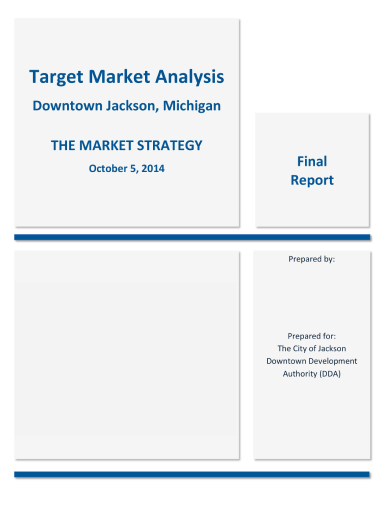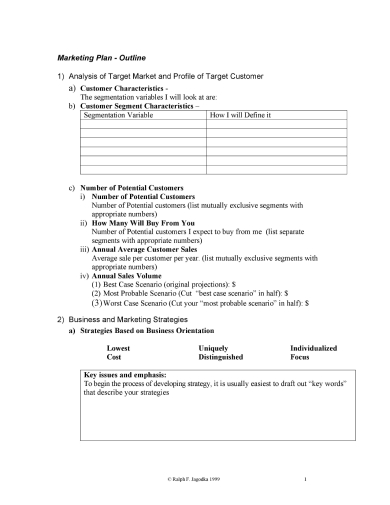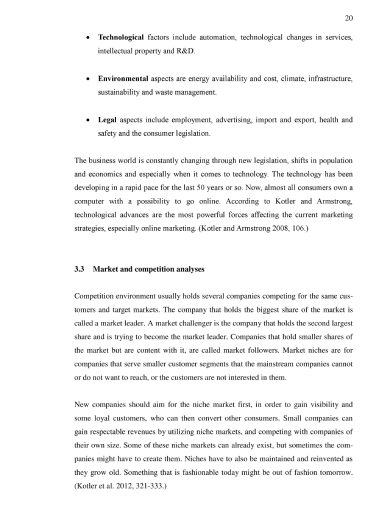34+ Target Market Examples to Download
In today’s fiercely competitive business landscape, understanding your target market is crucial to the success of any enterprise. With an ever-growing pool of consumers, pinpointing your ideal customers and tailoring your marketing efforts to their needs and preferences can significantly enhance your chances of business growth and profitability. This article presents a comprehensive guide to help you navigate the process of identifying and engaging your target market effectively…!!&&
bb_toc content=”][/bb_toc]
1. Basic Target Market Analysis
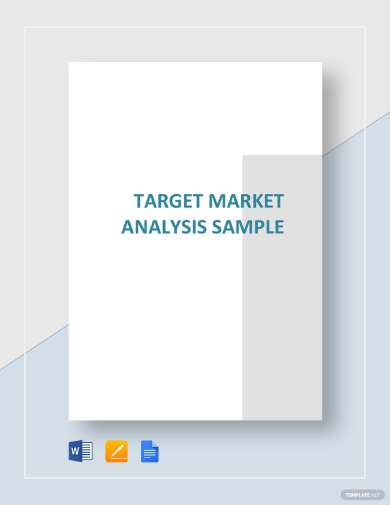
2. Clean Target Market Analysis

3. Segmentation and Targeting Market of Services
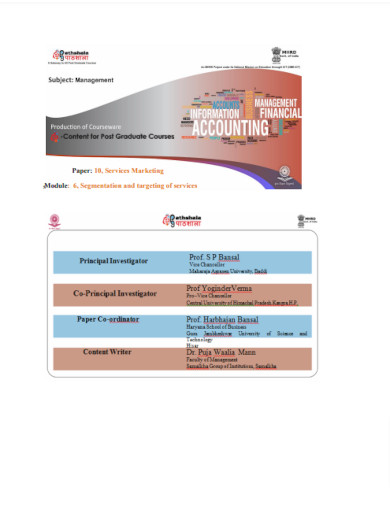
igntu.ac.in
4. Simple Target Market Example
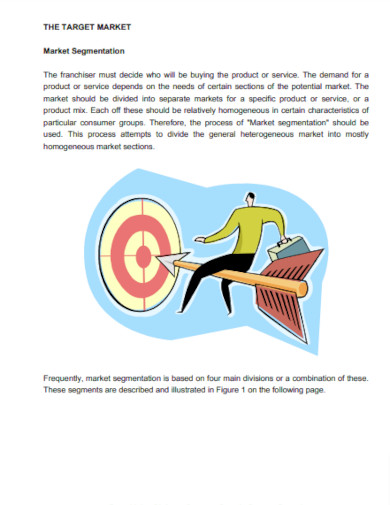
elearnuk.co.uk
5. Target Marketing Tools Example
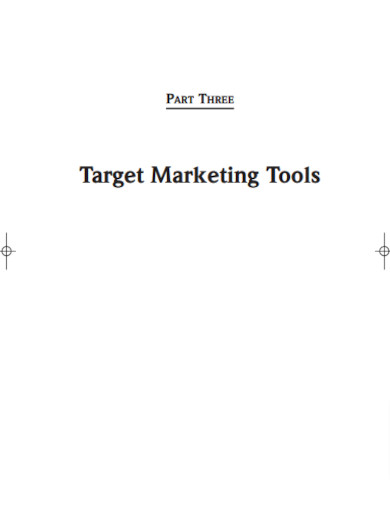
samples.jbpub.com
6. Target Market Person Activity Example
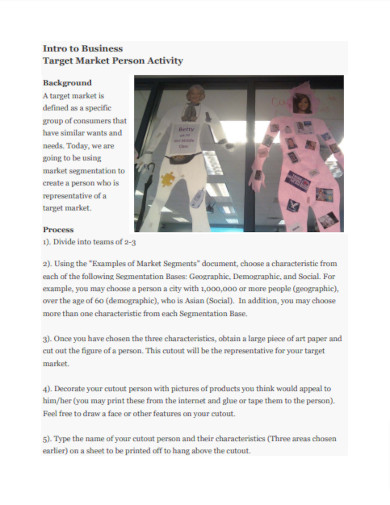
lcps.org
7. Market Segmentation Targeting and Positioning
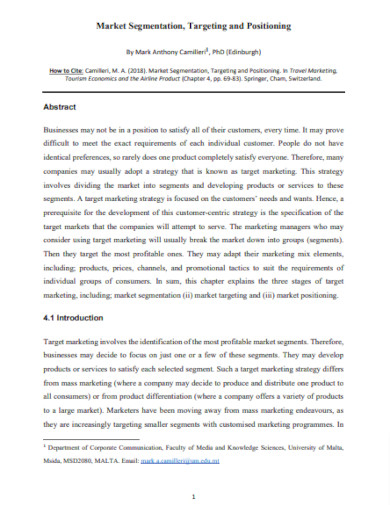
um.edu.mt
8. Sample Target Market Determination
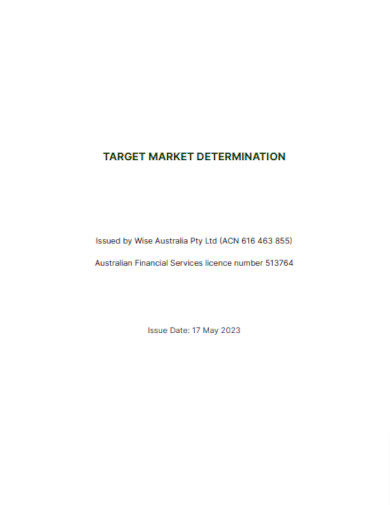
wise.com
9. Defining the Targeting Audience Example
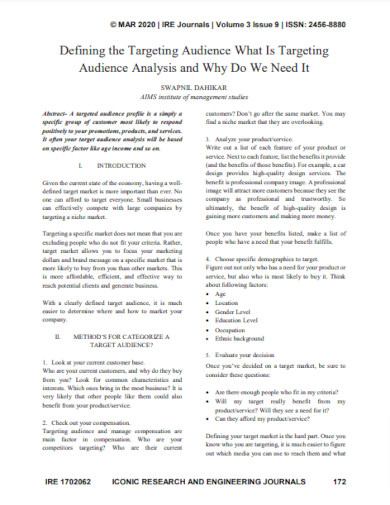
irejournals.com
10. Basic Target Market Determination Example
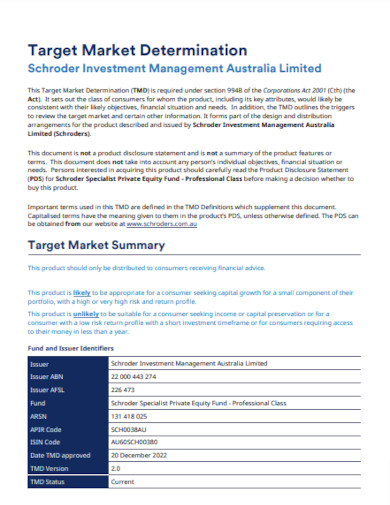
schroders.com
11. Editable Target Market Determination Example

deloitte.com
12. Printable Target Market Determination Example
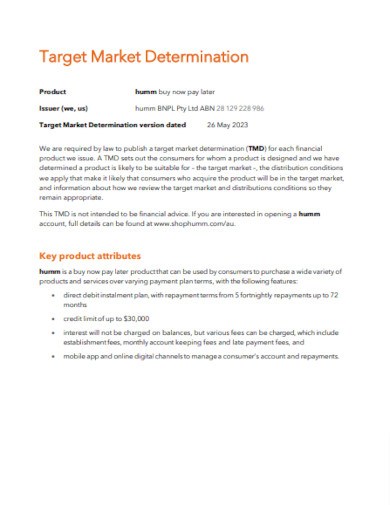
cdn.shophumm.com
13. Identifying Market Segments and Targets Example

universe.bits-pilani.ac.in
14. Standard Target Market Determination Example
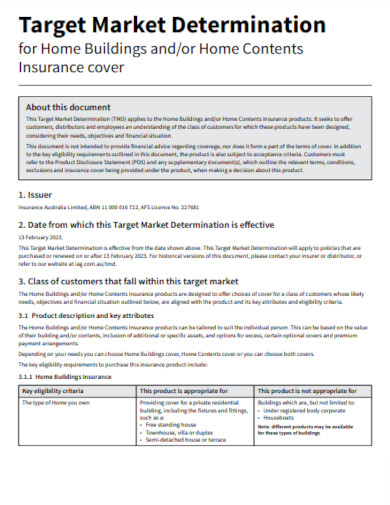
iag.com.au
15. Target Market for Seneca Growth Capital
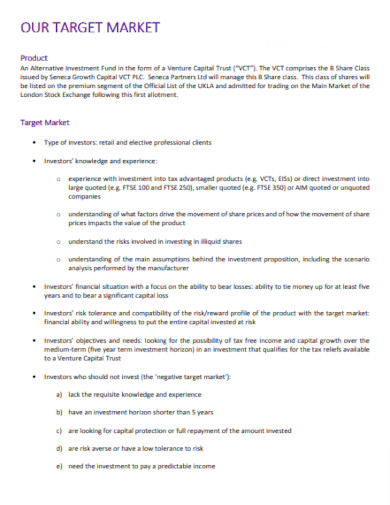
lighttowerpartners.co.uk
16. Identify your Target Market Example
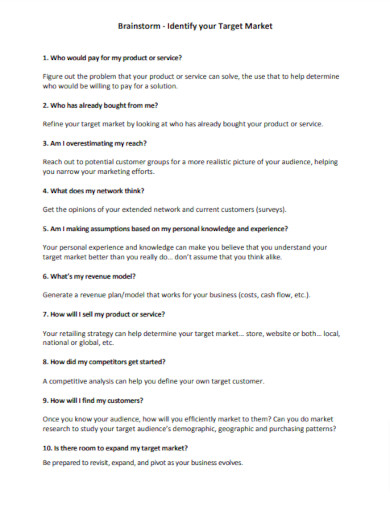
act.com
17. Target Market Statement Example
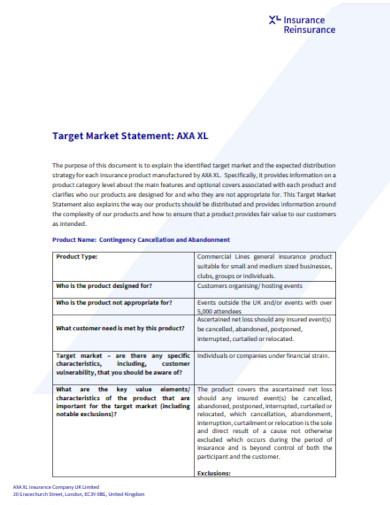
citynet.co.uk
18. Modern Target Market Determination Example

chubb.com
19. Target Market Special Conditions Regarding
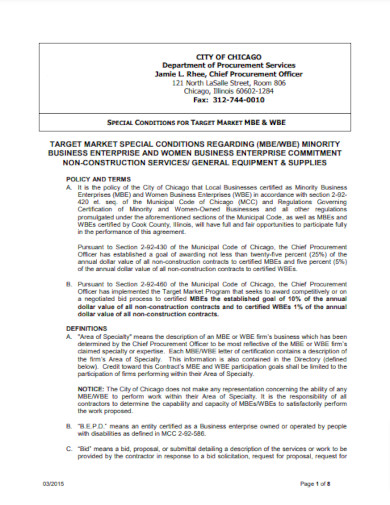
chicago.gov
20. Target Market and Product Governance

thephc.co.uk
21. Creative Target Market Determination Example
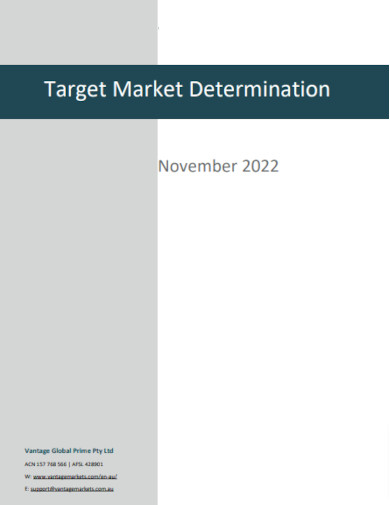
vantagemarkets.com
22. Draft Target Market Determination Example
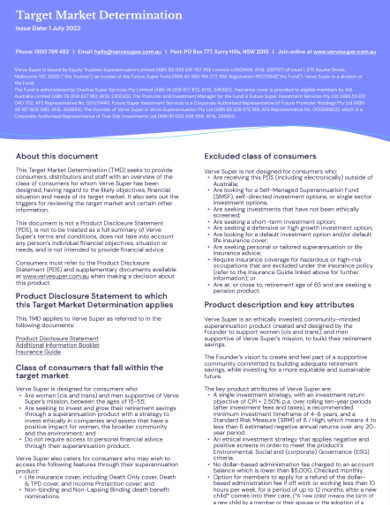
vervesuper.com.au
23. Target Market Identification and Data Collection Methods
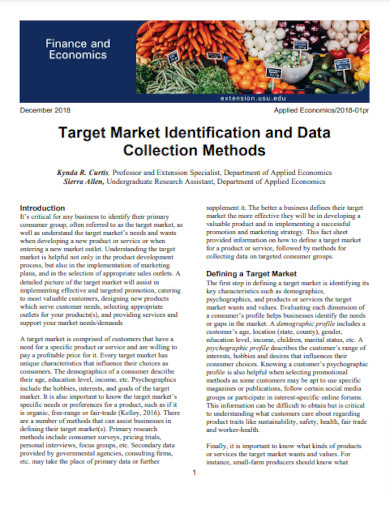
extension.usu.edu
24. Basic Market Segmentation and Targeting Example
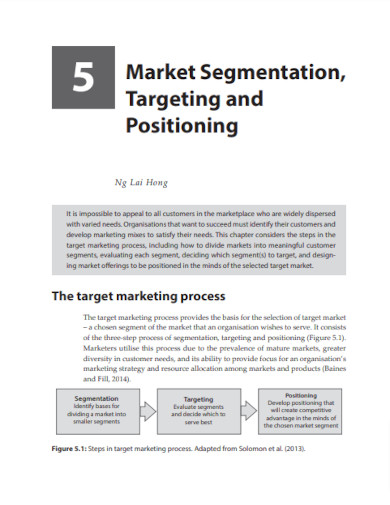
goodfellowpublishers.com
25. Profiling Your Target Market Example
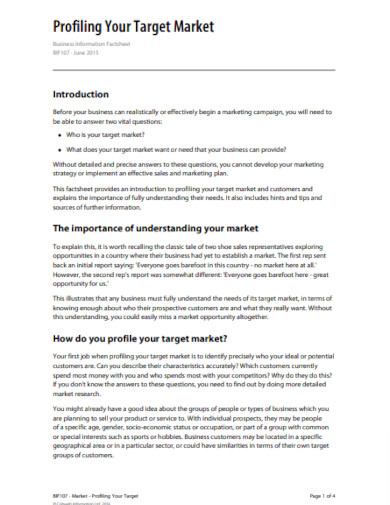
ed.ac.uk
26. Target Market Definition Example
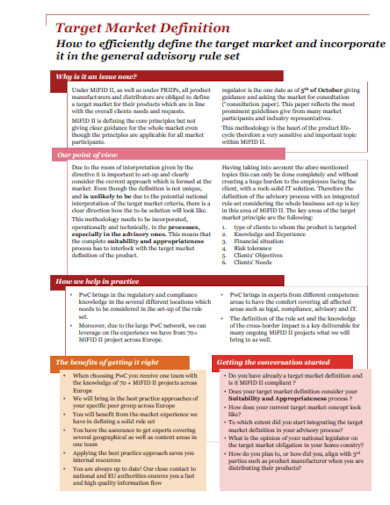
pwc.com
27. Market Segmentation and Targeting Example
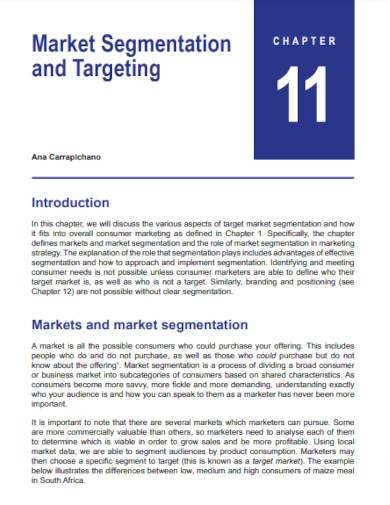
openbooks.uct.ac.za
28. Target Segment Strategy Example

nscpolteksby.ac.id
29. Identifying Market Segments and Target for Marketing Strategy Plan
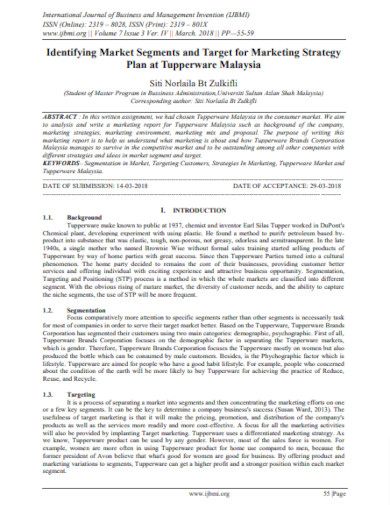
ijbmi.org
30. Target Market Determination Example
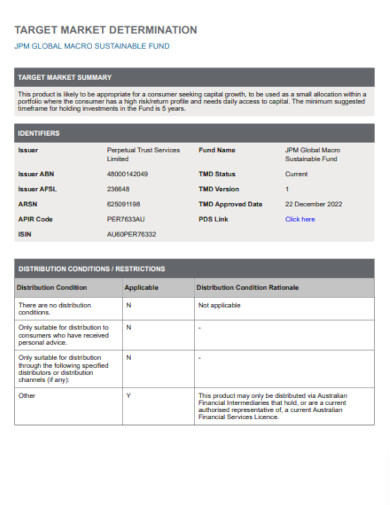
am.jpmorgan.com
31. Downtown Development Target Market Analysis
32. Simple Target Marketing Analysis
33. Strategic Target Marketing Analysis
34. Formal Target Market Analysis
35. Housing Target Marketing Analysis
What is a Target Market?
A target market refers to a specific group of individuals or businesses that a company aims to reach with its products or services. It represents the segment of the market that is most likely to have a genuine interest in what a business offers, thereby increasing the probability of conversion and customer loyalty. By identifying and understanding the characteristics, behaviors, and needs of their target market, businesses can tailor their marketing strategies and allocate resources more effectively.
How to Determine Your Target Market
Determining your target market requires a systematic approach that encompasses thorough research and analysis. By following these four steps, you can identify and engage your ideal customers effectively, allowing you to tailor your marketing strategies and maximize your business growth.
Step 1: Conduct Market Research:
Begin by conducting comprehensive market research to gather relevant data about your industry, competitors, and potential customers. Analyze market trends, demographics, psychographics, and consumer behavior patterns to gain insights into your target audience’s preferences, needs, and pain points.
Step 2: Create an Ideal Customer Persona:
Based on the research findings, create a detailed ideal customer persona that represents your target market. Consider factors such as age, gender, location, interests, values, and challenges. This persona will serve as a guiding profile for your marketing efforts, enabling you to understand and address the specific needs of your ideal customers.
Step 3: Segment Your Audience:
Segment your broader audience into distinct groups based on shared characteristics. Consider demographics, psychographics, geographic location, purchasing behavior, or any other relevant factors. This segmentation allows you to customize your marketing messages and strategies for each group, ensuring that your efforts are more targeted and resonate with your target market.
Step 4: Test and Refine:
Implement your marketing strategies and closely monitor the results. Track key metrics such as conversion rates, customer feedback, and sales data to assess the effectiveness of your efforts. Use this feedback to refine your target market definition and adjust your strategies accordingly. Regularly reassess your target market to adapt to changing consumer behavior and market dynamics.
FAQs
Why is identifying a target market important?
Identifying a target market is essential because it allows businesses to focus their marketing efforts and resources on a specific group of people who are most likely to be interested in their products or services. This focus leads to more efficient and effective marketing campaigns, resulting in higher conversion rates and customer satisfaction.
Can a target market change over time?
Yes, a target market can evolve over time due to shifting consumer behaviors, market trends, or changes in your business strategy. Regularly reassessing your target market ensures that your marketing efforts remain aligned with your audience’s preferences and needs.
How can I reach my target market effectively?
To effectively reach your target market, employ a combination of marketing channels and tactics that align with your audience’s preferences and behavior. Utilize online advertising, social media campaigns, content marketing, influencer partnerships, or targeted email marketing to reach and engage your ideal customers.
Determining your target market is a vital step in optimizing your marketing efforts. By conducting thorough market research, creating an ideal customer persona, segmenting your audience, and continuously testing and refining your strategies, you can position your business for success. Remember, a well-defined target market allows you to deliver personalized and relevant messages to your ideal customers, fostering stronger connections and driving business growth.


